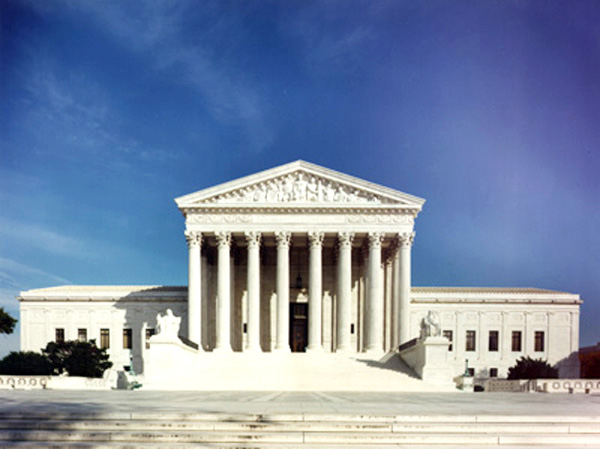Supreme Court Silences the Little Guy in Favor of Corporations
July 5, 2011

Published: March 4, 2010
Rhetorically, 2009 was Main Street’s year. Despite the beatings the American middle class took as a result of the recession, “Main Street” was the talk of the town—especially if that town was Washington. Over and over again throughout the year, we heard the merits of the hard-working, small-time entrepreneurs of the middle class lauded from all points on the political spectrum. The Obama administration gave them tax cuts. Conservatives ignored this fact and continued to bellow about the left’s secretly evil agenda to destroy small businesses. But the fact is that, on both sides, the focus was on preserving comfort and stability on metaphorical Main Street. And in the wake of billions of dollars’ worth of slap-in-the-bailout’s-face bonuses to corporate executives this past Christmas, it seemed as if everyone was (finally) starting to hate Wall Street.
Everyone but the Supreme Court, that is. Barely a month after the infamous Christmas bonuses were doled out, the country’s highest court ruled five-to-four to overturn a precedent that had, until that point, banned corporations from sponsoring political campaign advertisements. According to the majority, this ban is a violation of the first amendment, which states that no individual can be fined or imprisoned for an expression of political opinion.
Unfortunately, the Supreme Court’s majority failed to acknowledge the profound difference between citizens and corporations. The Bill of Rights was written to protect the human beings living in the United States—not multi-national financial hegemonies whose best interests involve the exploitation of the middle and lower classes in this nation and others. When people have interests—misguided or not—they are generally aimed at personal wellbeing; when companies have interests, they are, by definition, focused solely and obsessively on profit. A corporation doesn’t need basic amenities, health care or housing; people do. It is for this reason that citizens—not businesses—are the sole owners of voting rights.
Though it is cloaked in the conservative interpretation of free speech, this Supreme Court ruling will have one result: a systematic silencing of the less privileged classes. The consequence is absurdly simple to foresee; the people with the most money will be permitted to promote their political agendas without bound, while the rest cannot afford to compete. A Fortune 500 company that wants to keep its bonuses can spit out a high-tech commercial with an astronomical budget in no time, while more progressive NGOs and non-profits struggle to scrape together enough funding to create and distribute undoubtedly lower-quality advertising. Corporations can pay for better ploys, glossier imagery and, most importantly, more airtime than any less affluent interest group.
This might not be such a huge issue if we could count on Americans to consider the source of the information they are being fed. However, the fact that, according to CBS News, only 12 percent knew that their taxes were lowered this year should be enough evidence to call for concern in this regard. There are many Americans who either cannot or choose not to follow politics, and if they’re constantly bombarded with slanted messages presented as truth—with only a “Sponsored by [your favorite financial powerhouse]” tacked onto the end screen in fine print—it’s likely that many will accept the loaded testimony as truth.
Allowing Wall Street to participate in campaign advertising is like giving a trust fund kid a full scholarship to Harvard: overkill. Just like a billionaire’s son will be affluent and educated no matter where he goes to school or how much he pays for it, corporations will have an unavoidable hold on political action no matter what they’re allowed to say publicly about it. Whether or not corporations have the ability to run political advertisements on network television, their frustratingly powerful lobby will block any real progressive action in government regardless of who wins an election (see also: health care reform).
In November 2008, the majority of U.S. citizens voted for change, and probably most of the individuals reading this piece were members of that majority. In a direct affront to this spirit of progress, the Supreme Court’s recent decision has made a tangible contribution to the maintenance of the status quo—the seemingly unbridled power of a small economic elite over the interests of those whose tax dollars paid for their bonuses. Grassroots movements for progress were what put our President in the Oval Office. Now, the Supreme Court has put even more power in the hands of the institutions that made these movements underdogs to begin with. Grassroots can be powerful, but big business is powerful. Yet again, American equality has been drowned in the voices of the richest, and no one can afford to be louder.









